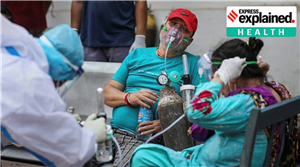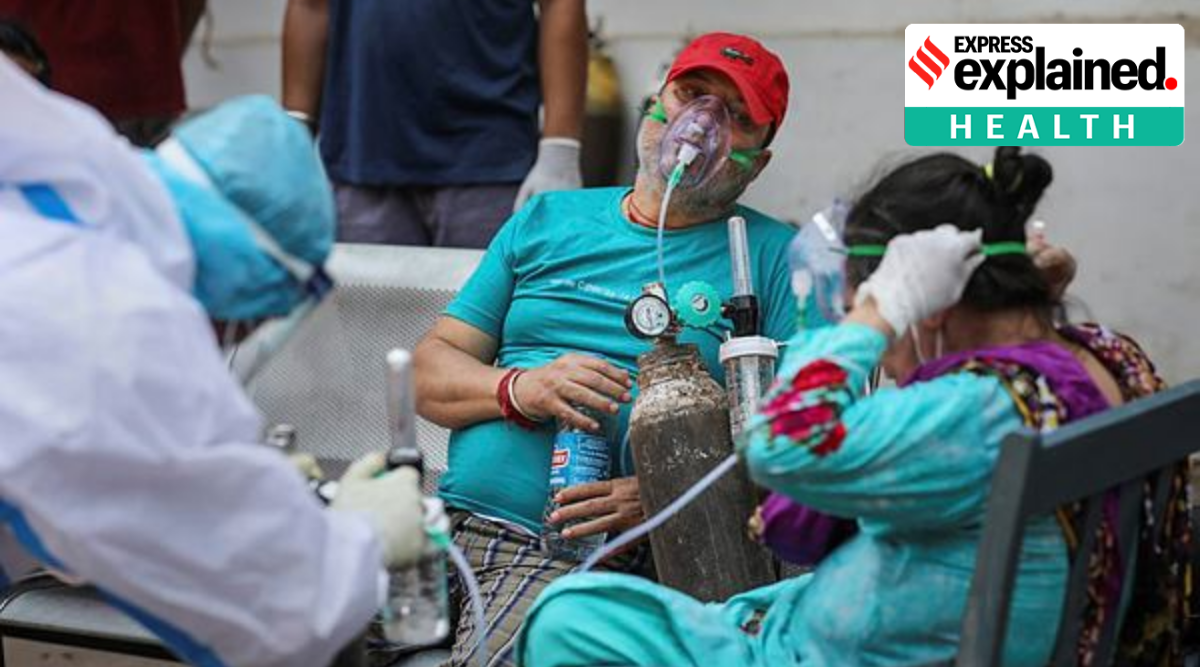Families often tend to have many questions regarding post-Covid management of patients, which can be both tricky and critical. Doctors detail the dos and dont's
When is a Covid patient considered to be cured?
Asymptomatic or mildly symptomatic Covid patients are considered to be virus-free after 10 to 14 days. For patients who are hospitalized, it was earlier suggested that an RT-PCR test be done before discharge, However, that recommendation has changed now. Health care experts have found that sometimes a Covid test returning positive simply suggests the presence of harmless virus particles, which the immune system has efficiently dealt with. Recovered patients can continue to have SARS-CoV-2 RNA detected in their upper respiratory specimens for up to 12 weeks after symptoms develop, said Dr Vittul K. Gupta, chairman of Association of Physicians of India (API), Malwa Branch.
What sort of care is needed for patients getting cured?
Covid-19 is a relatively new disease and post-Covid problems are still being studied. Generally, Covid-19 patients take 2- 3 weeks to recover completely. Following a general health routine, involving a nutritious diet, exercise, stress-relieving measures, and yoga often aid early recovery. Dr Ajit Singh Chawla, a Ludhiana-based physician, and former district epidemiologist, said,” Special care needs to be taken of the lungs as their involvement in Covid is the maximum. Hence, one must continue to monitor their oxygen levels. A few patients may require oxygen support for a few weeks after getting cured. All breathing exercises need to be continued even after getting cured.”
What precautions need to be taken care for patients with co-morbidities ?
Dr Chawla said, “Special care needs to be taken of patients who are diabetic, because while treatment of Covid they are subjected to steroids that tends to increase the sugar levels. Hence, after getting cured once such patients go back to their normal eating habits, they can end up in hospitals again. In fact, a patient needs to be regularly in touch with doctors if he suffers from co-morbidities like hypertension, diabetes, cardiovascular diseases or renal failure. Any sign of breathlessness or confusion should not be taken lightly, just because you have tested negative.”
Why do many patients suffer heart attacks after getting cured of Covid?
Covid-19 can cause acute myocardial injury and chronic damage to the cardiovascular system often in severe cases, because of the systemic inflammatory response, immune system disorders. It can also be related to Angiotensin-converting enzyme 2 (ACE2) receptors in the heart, informed Dr Gupta. Dr Chawla added,” In fact, all the vital organs — like kidneys, brain, liver, lungs —get inflammatory response. Hence one needs to be in touch with their doctor once every fortnight, even after getting cured.”
How to keep lungs and heart healthy?
After Covid, the heart and lungs can be kept healthy with a controlled diet, optimization of weight, regular exercises especially respiratory exercises and control of co-morbid problems, if any.
What complications are expected after getting cured of Covid?
Post-Covid complications are being studied and can affect both mental health and physical health. Generally, recovered patients tend to get a feeling of fever without actual increase in temperature, fatigue, weakness, anxiety, stress and breathlessness, informed Dr Gupta
What sort of exercises are needed in post-Covid management?
To return to a normal routine after Covid infection is a gradual process. Even after testing negative, fatigue, muscle and joint pain can stay for a bit longer. Dr Kiran Gill, civil surgeon Ludhiana said, “The key is to go slow. All patients after getting cured must continue with breathing exercises. Asymptomatic patients can start their routine workouts after 7-10 days. Patients with co-morbid conditions should wait for 3-4 weeks before they start exercising. The best exercise is to start walking for 5-10 minutes and then increase the timing slowly. One should stop exercising if they start feeling breathless. One should not over-exert. Patients who have clotting complications should consult their doctor before starting any exercise.
What is the role of a respirometer and inhaler, what are their benefits?
Patients who do not have any respiratory comorbidities or any respiratory symptoms do not need respirometers and inhalers with spacers. Respirometers and inhalers are useful only in people with respiratory symptoms or comorbidities that too under the guidance of a specialist doctor, asserts Dr Gupta.
For how long does a recovered patient need post-Covid care?
The extent and duration of post-Covid care will depend on symptoms and complications. If there are no post-Covid symptoms or complications, a person may not need any specific post-Covid care and continue with universally accepted norms of a healthy lifestyle — diet, exercise and avoidance of smoking and alcohol.
When can a patient return to his/her job?
Dr Vittual K Gupta said,” Adults with mild to moderate Covid-19 remain infectious no longer than 10 days, after symptoms show up. Those who fall critically ill or are severely immune-compromised likely remain infectious no longer than 20 days, after symptom onset. At work, many companies require a negative test report before joining work.”
According to the manual of AIIMS, patients under home isolation may end their home isolation after at least 10 days have passed from the onset of symptoms (or date of sampling for asymptomatic patients ) and afebrile for at least 72 hours. There is no need for testing after the home isolation period is over.
Source: Read Full Article


